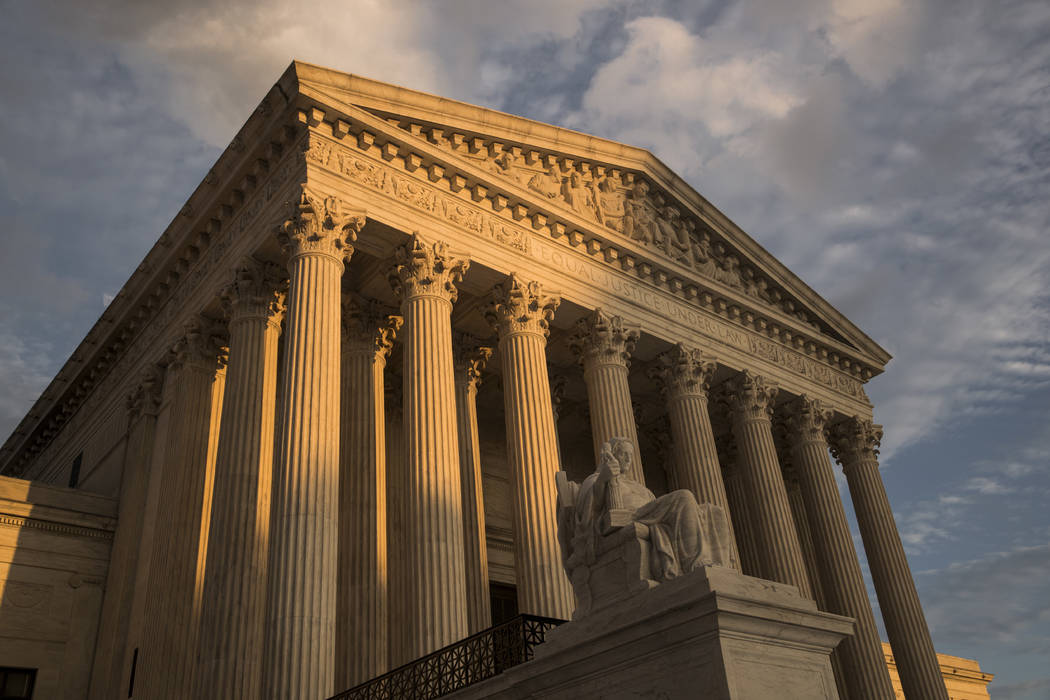EDITORIAL: Supreme Court Justice Neil Gorsuch and contempt of cop
Supreme Court Justice Neil Gorsuch has been on the bench for barely a year, yet he has already proven himself much more difficult to pigeon-hole than his vocal leftist critics feared. In fact, he has quickly become one of the court’s foremost defenders of civil rights, something progressives should applaud.
Consider his dissent this week in Nieves v. Bartlett, an Alaska case that involved a “contempt of cop” arrest at a festival known as Arctic Man. The dispute occurred when festival attendee Russell Bartlett told campers at the event not to interact with the police, who were looking for underage drinkers. The officers maintained Mr. Bartlett was belligerent and drunk, which he denied. The situation escalated, and the cops arrested Mr. Bartlett for disorderly conduct and resisting arrest.
Mr. Bartlett sued under a federal law, claiming the police had retaliated against him for engaging in protected speech and thus violated his constitutional rights “under color of any statute.” The justices ruled 6-3, however, that because police had probable cause to detain Mr. Bartlett, “his retaliatory arrest claims fail as a matter of law.”
But Justice Gorsuch’s dissent is worthy of attention for its allegiance to liberty over government power. He correctly draws the distinction that simply because the police have probable cause to make an arrest doesn’t mean they can’t violate an individual’s rights by doing so.
“History shows that governments sometimes seek to regulate our lives finely, acutely, thoroughly and exhaustively,” he wrote. “In our own time and place, criminal laws have grown so exuberantly and come to cover so much previously innocent conduct that almost anyone can be arrested for something. If the state could use these laws not for their intended purposes but to silence those who voice unpopular ideas, little would be left of our First Amendment liberties, and little would separate us from the tyrannies of the past or the malignant fiefdoms of our own age. … The point of this kind of claim isn’t to guard against officers who lack lawful authority to make an arrest. Rather it’s to guard against officers who abuse their authority by making an otherwise lawful arrest for an unconstitutional reason.”
The late left-wing essayist Nicholas von Hoffman once lamented that federal and state criminal codes had become so extensive, complicated and impenetrable as to be a danger to civil liberties. They say ignorance of the law is no defense, he wrote, but if nobody knows what the law is, we’re all defenseless.
As Justice Gorsuch noted, cops and prosecutors can likely find a sliver of probable cause to arrest anyone for anything. That opens the door for dangerous abuses. That Justice Gorsuch is willing to challenge the state’s authority in that regard should be applauded by those across the political spectrum.

















